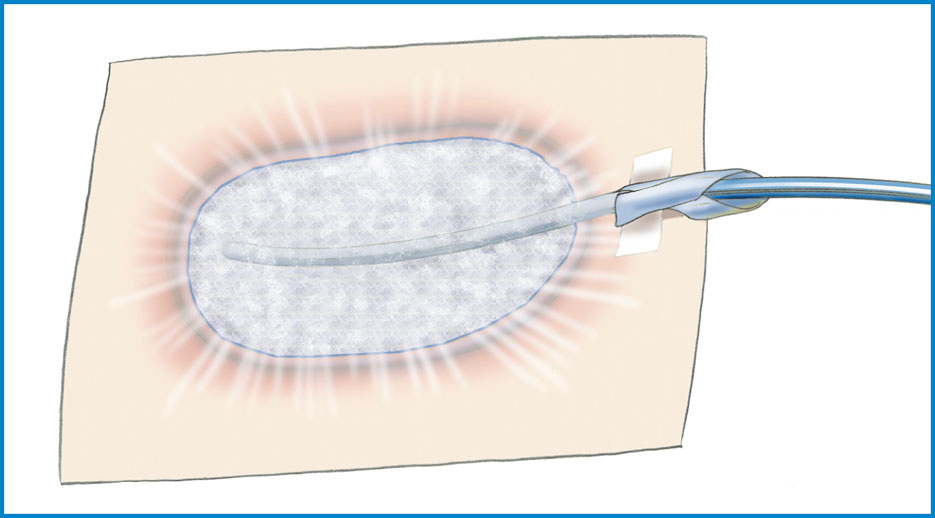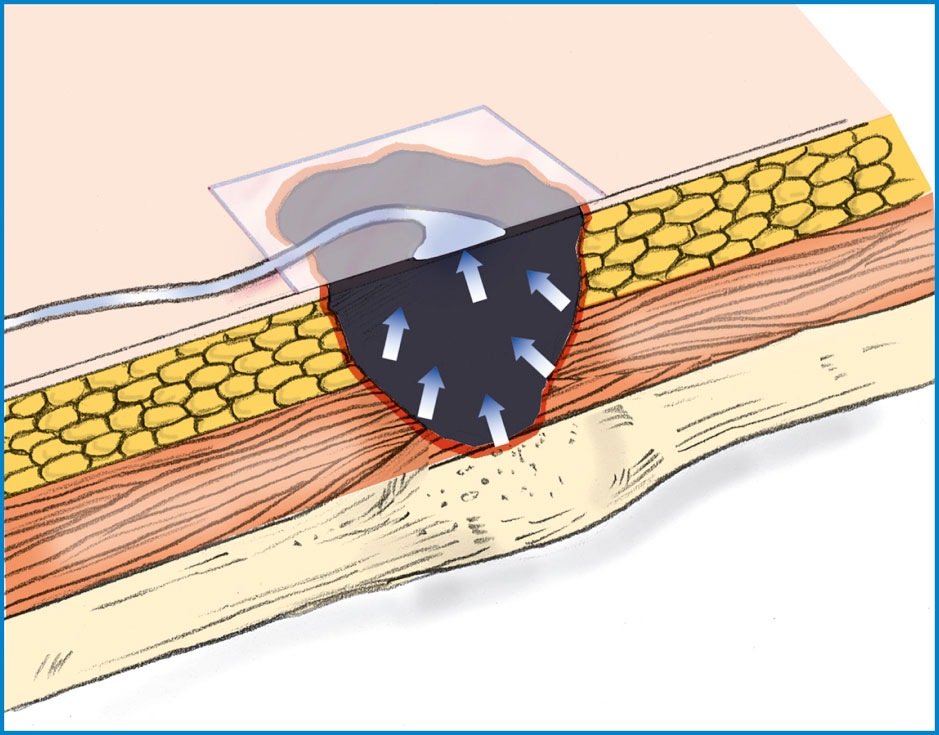| Understanding negative-pressure wound therapy | |
When a wound fails to heal in a timely manner, negative-pressure wound therapy is an option to help enhance delayed or impaired wound healing. It involves placing a special dressing in a wound or over a graft or flap and using a vacuum-assisted closure device to create negative pressure within the wound bed, which dilates arterioles within the wound bed, increasing circulation and improving proliferations of granulation tissue. 2 Depending on the type of wound, the selected manufacturer’s equipment, and the practitioner’s preference, gauze or foam packing will be used. Gauze Packing Gauze packing, as shown below, is typically used in circumferential and tunneling wounds and explored enteric fistulas. Gauze fits most wounds and tends to be more comfortable for the patient during application and removal.
Foam Packing Foam packing, as shown below, is typically used in wounds with a lot of exudate. It’s available in various sizes to fit a wide range of wound types, and can be cut to accommodate any wound size.
|

